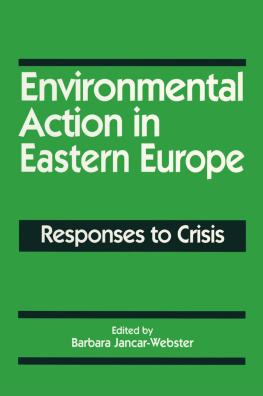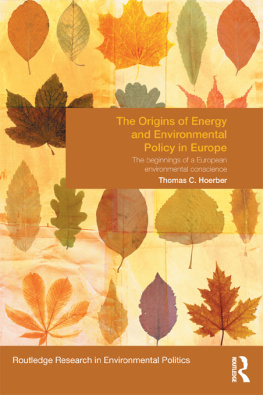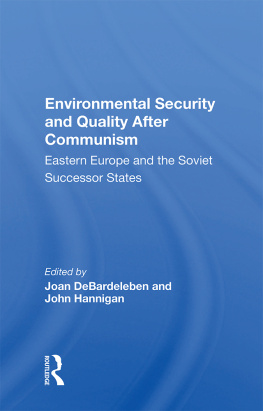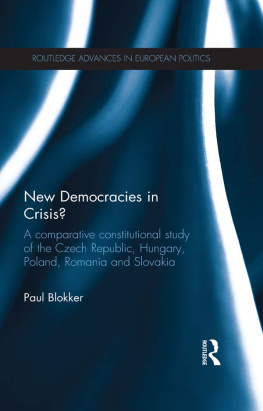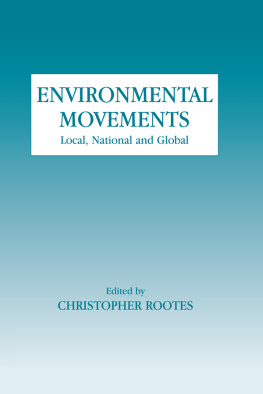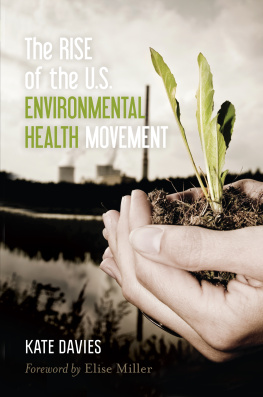First published 1993 by M.E. Sharpe
Published 2015 by Routledge
2 Park Square, Milton Park, Abingdon, Oxon OX14 4RN
711 Third Avenue, New York, NY 10017, USA
Routledge is an imprint of the Taylor & Francis Group, an informa business
Copyright 1993 Taylor & Francis. All rights reserved.
No part of this book may be reprinted or reproduced or utilised in any form or by any electronic, mechanical, or other means, now known or hereafter invented, including photocopying and recording, or in any information storage or retrieval system, without permission in writing from the publishers.
Notices
No responsibility is assumed by the publisher for any injury and/or damage to persons or property as a matter of products liability, negligence or otherwise, or from any use of operation of any methods, products, instructions or ideas contained in the material herein.
Practitioners and researchers must always rely on their own experience and knowledge in evaluating and using any information, methods, compounds, or experiments described herein. In using such information or methods they should be mindful of their own safety and the safety of others, including parties for whom they have a professional responsibility.
Product or corporate names may be trademarks or registered trademarks, and are used only for identification and explanation without intent to infringe.
Library of Congress Cataloging-in-Publication Data
Environmental action in Eastern Europe: responses to crisis /
edited by Barabara Jancar-Webster.
p. cm.
Includes index.
ISBN 1-56324-036-X (cloth).
ISBN 1-56324-187-0 (pbk.)
1. Environmental policyEurope, EasternCongresses.
2. Europe, EasternEconomic policy1989 Congresses.
I. Jancar-Webster, Barbara, 1935
HC244.Z9E52 1992
363.7'056'0947DC20
92-37852
CIP
ISBN 13: 9781563241871 (pbk)
Introduction
Barbara Jancar-Webster
In 1989 the people of Eastern Europe threw off the communist yoke, and with it, forty years of Soviet hegemony. The principal issue that became symbolic of the arbitrary and dictatorial nature of the communist system was the environment. In every East European country and in republics of the Soviet Union the population rallied to demand the end of the regime which had brought them to the brink of environmental catastrophe. The elections of 1990 brought to power parties that promised swift environmental remediation; yet to date, no government has given more than lip service to environmental projects. The environmental issue receded into the background as old nationalist scores demanded settlement and new economic concerns pushed to the forefront. At the beginning of 1992, the former communist countries found themselves deep in the process of transition. It was clear where they had come from; but the future was shrouded in uncertainty. Yugoslavia and the Soviet Union faded from the map, to be replaced by sovereign states formed from the constituent republics of the communist federations. There was much talk of democracy and human rights, but in most countries these were far from being implemented. The toll from the war between Croatia and Serbia was estimated at $15 billion, with over half a million people driven from their homes and some 15,000 killed. In Nagorno-Karabakh, battles raged between Azeri and Armenian nationalists. In Czecho-Slovakia, the government instituted a five-year moratorium on the employment of former members of the Communist Party, and then negotiated its own demise as the country broke in two. Much was written about the need to create a free market economy, but in every country in the region, the bulk of economic activity remained in state hands.
This book was developed from papers presented at the World Slavic Congress held at Harrogate, England, in July 1990. At that time, there was general euphoria regarding developments in Eastern Europe. In June of that year, Czechs and Slovaks had gone to the polls in the first free elections since 1946. The Civic Forum and its Slovak counterpart won handily. Throughout the region that summer, the air was electric with change, reform, and new beginnings. The papers presented at the Congress reflected the positive atmosphere. But like all new beginnings, it takes time for seeds to bear fruit, and the first flowers can appear a long way off. The papers presented here mirror the uncertainties and doubts that accompanied the end of the democratic honeymoon and present a sober assessment of the chances for ameliorating the region's serious environmental problems any time soon.
The chapters that follow address the current uneasy time of transition in a similar pattern. Each attempts to explain why and how the old regime brought such environmental destruction, why and how the opposition utilized the environmental theme to bring down the communist government, and what new legislation and organized action on the part of environmental groups are needed to remedy the existing negative environmental conditions.
These problems are arranged under two separate categories and treated on a country-by-country basis: legislation or environmental remediation from the top down, and the environmental movement, or environmental remediation from below. The authors are specialists in the area or government officials from the East European countries, Russia, and the West. The mix of authors was deliberate. While the Western experts base their analyses on observations from outside the system, the East European and Russian specialists write from their life experiences within. The tone and seriousness of the chapters vary widely from the ironic humor of Sandor Peter of Hungary and Evgenii Shvarts of Russia to the drier scholarly prose of Michael Kozeltsev of Moscow University and Evaldas Vebra of Lithuania's Department of Environmental Conservation.

